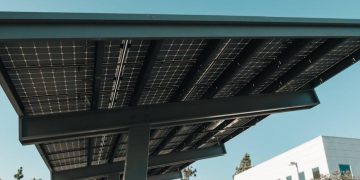In a world where the sun generously bestows its radiant energy upon us, the question arises: should we be harnessing this power more assertively, even if it comes at a steep price? The debate over mandating solar energy, despite its significant costs, is as multifaceted as a prism reflecting sunlight. On one side, proponents argue for the environmental and long-term economic benefits of widespread solar adoption. On the other, critics caution against the financial burdens and logistical challenges that such mandates might impose. This article delves into the heart of this heated discussion, exploring the potential benefits and drawbacks of making solar energy a universal requirement. As we stand at the crossroads of innovation and expense, the decision to mandate solar power prompts a broader reflection on our priorities and the future we envision for our planet.
Evaluating Economic Implications of Mandatory Solar Adoption
The debate over enforcing solar energy adoption hinges on understanding its potential economic ramifications. On one hand, transitioning to solar power could lead to significant environmental benefits and long-term cost savings for consumers. However, the initial investment is undeniably high, raising concerns about affordability and equitable access. Mandatory adoption might place a disproportionate financial burden on lower-income households and small businesses, potentially exacerbating existing economic inequalities.
Yet, there are compelling arguments for government intervention to support this transition. Potential economic benefits of mandatory solar adoption include:
- Job Creation: A surge in demand for solar panels could boost the manufacturing sector and lead to increased employment opportunities in installation and maintenance.
- Energy Independence: Reducing reliance on imported fossil fuels could stabilize national energy prices and enhance energy security.
- Incentive Structures: Governments could implement subsidies or tax incentives to alleviate the financial impact on consumers, making solar energy more accessible.
Ultimately, while the upfront costs of solar implementation are considerable, strategic planning and supportive policies could mitigate these challenges, fostering a sustainable economic landscape.

Environmental Benefits Versus Financial Burden: A Balanced Perspective
When considering the widespread adoption of solar energy, the tension between its environmental benefits and financial implications often comes to the forefront. On one hand, solar power offers significant environmental advantages:
- Reduction in greenhouse gas emissions
- Decreased reliance on fossil fuels
- Preservation of natural ecosystems
These benefits are compelling and align with global sustainability goals. However, the financial burden cannot be overlooked. Installing solar panels can be prohibitively expensive for many households and businesses, even with available incentives. Additionally, the return on investment is not immediate, often taking several years to materialize. This duality presents a complex challenge: while the environmental gains are undeniable, the economic feasibility requires careful consideration and strategic planning.

Innovative Financing Solutions for Solar Energy Accessibility
While the debate over mandating solar energy continues, innovative financing solutions are emerging to address the concern of high upfront costs. These solutions aim to make solar more accessible to a broader audience, bridging the gap between environmental needs and economic realities. Power Purchase Agreements (PPAs), for instance, allow homeowners and businesses to pay for solar power at a fixed rate, avoiding the hefty initial investment. Community solar programs provide another avenue, enabling individuals to buy into shared solar installations, thus benefiting from clean energy without installing panels on their own properties.
Moreover, green loans and solar leasing options are expanding, offering more flexibility and affordability. Green loans often come with lower interest rates and favorable terms, making them attractive for those looking to finance their solar projects. Meanwhile, solar leasing allows users to lease the solar equipment, eliminating the need for a large cash outlay. These financing models are not just making solar energy feasible but also driving its adoption, suggesting that the high costs may not be as prohibitive as once thought.

Policy Recommendations for Equitable Solar Energy Implementation
In navigating the complexities of solar energy adoption, it’s essential to prioritize equitable access and sustainability. Here are some policy recommendations to ensure fair implementation:
- Incentive Programs: Develop targeted subsidies and tax credits that prioritize low-income households, enabling broader access to solar technology.
- Community Solar Projects: Encourage the establishment of community solar farms that allow residents, particularly renters and those without suitable rooftops, to invest in shared solar energy systems.
- Education and Outreach: Implement educational campaigns to raise awareness about the long-term benefits of solar energy and the financial assistance available, helping to demystify the technology for diverse communities.
- Local Manufacturing and Job Training: Support local production of solar components and create job training programs to foster economic growth and workforce development within underrepresented communities.
By integrating these strategies, we can mitigate the high initial costs of solar installations while promoting an inclusive transition to renewable energy.
Future Outlook
As we draw the curtains on this exploration of whether solar energy should be mandated despite its high costs, we find ourselves standing at a crossroads of innovation and practicality. The sun, in all its fiery glory, offers a tantalizing promise of a cleaner, greener future. Yet, the path to harnessing its power is paved with challenges that cannot be ignored. The decision to mandate solar is not merely a matter of policy but a reflection of our collective values and vision for tomorrow.
the debate over solar mandates transcends the realm of economics and enters the domain of ethics and responsibility. It is a dialogue between the present and the future, between what is feasible today and what is necessary for tomorrow. As we continue to grapple with this complex issue, let us remember that the journey to sustainable energy is not a sprint but a marathon—one that requires both careful deliberation and bold ambition.
So, as we leave the solar conundrum behind, at least for now, we carry with us the understanding that the answers we seek are not written in the stars but forged through our choices. Whether solar mandates will illuminate our path forward remains a question, but the conversation itself lights the way toward a more informed and balanced energy future.


































